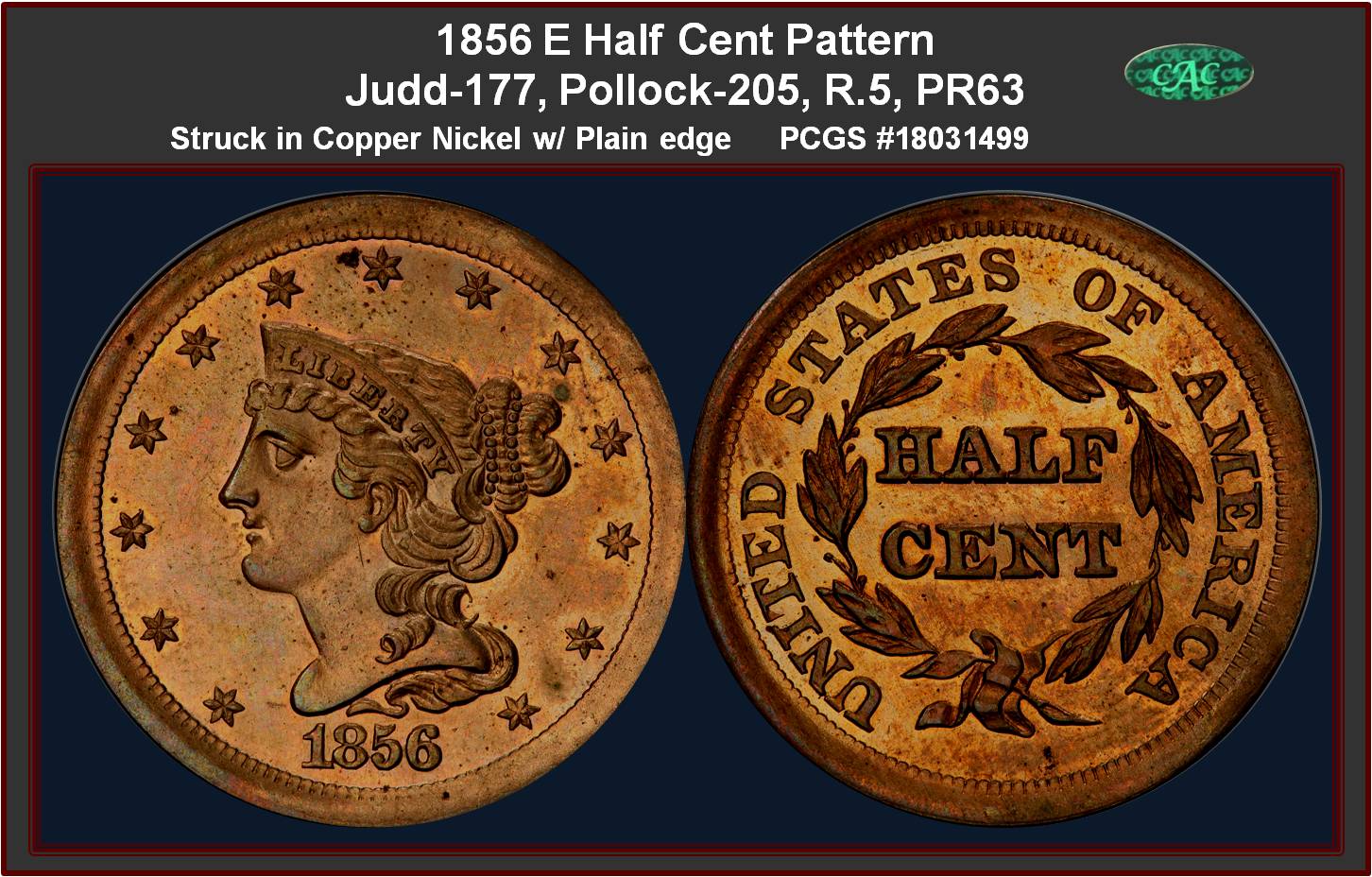Owner Comments:
 1856 Half Cent
1856 Half Cent
Judd-177, Pollock-205
Rarity: R.5, PR63 Endorsed by CAC.
Struck in copper-nickel with a plain edge.
Obverse/Reverse: Regular dies for the Braided Hair half cent,
Comment:
These metallurgical trial strikes were produced in anticipation of the Flying Eagle small cents that began production the same year.
This example is a lovely Select proof with lightly mirrored, golden-tan surfaces. A few hairlines and contact marks are insignificant.
Additional Information noted the Harry Bass site on these 1/2 cents:
"Essentially an experimental issue to test the copper-nickel alloy, this pattern was struck from the regular dies catalogued as Breen-2 among half cents of this year. Two different compositions are reported, one with 90% copper and 10% nickel, the other with 88% copper and 12% nickel. Although some numismatists have attempted to distinguish between these compositions based on color, the only way to be certain is through elemental analysis. These half cent patterns were struck sometime prior to July 11, 1856, the date of a letter from the Mint Director to Secretary of the Treasury James Guthrie."
Additional Information noted the Stacks and Bowers Catalog notation in the Nov 2010 75th Anniversary Sale
The increase in Nickel usage was partly driven by Joseph Wharton who was a wise businessman who saw an opportunity of mining. The metal nickel was of little use at the time, and he purchased the nickel mines then existing in the Western hemisphere. Soon Wharton had the ears of important politicians and nickel soon became a metal of design for the mint to use. The hardness of nickel meant that it lasted a very long time in circulation; however, the dies were scarcely able to strike it up without shattering. By combining nickel with copper or other metals, the mints were able to employ it as a planchet ingredient on several small denomination coins. Wharton eventually became rich selling his nickel supplies to the mints for coinage and donated money to form the Wharton Business school located at the University of Pennsylvania
Provenance/Appearances
From The Dale Hopkins Collection; 2014 April 23 - 27 CSNS US Coin Signature Auction - Chicago #1204; Prior Stacks Nov. 2010, 75th Anniversary Sale -The W.L. Carson Collection of U.S. Proof Sets THE COINS OF 1856 /Lot# 5006
.